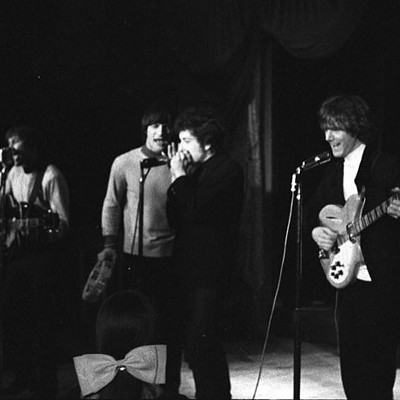Support Us
Houston's independent source of
local news and culture
account
- Welcome,
Insider - Login
- My Account
- My Newsletters
- Contribute
- Contact Us
- Sign out
[
{
"name": "Related Stories / Support Us Combo",
"component": "11591218",
"insertPoint": "4",
"requiredCountToDisplay": "4"
},{
"name": "Air - Billboard - Inline Content",
"component": "11591214",
"insertPoint": "2/3",
"requiredCountToDisplay": "7"
},{
"name": "R1 - Beta - Mobile Only",
"component": "12287027",
"insertPoint": "8",
"requiredCountToDisplay": "8"
},{
"name": "Air - MediumRectangle - Inline Content - Mobile Display Size 2",
"component": "11591215",
"insertPoint": "12",
"requiredCountToDisplay": "12"
},{
"name": "Air - MediumRectangle - Inline Content - Mobile Display Size 2",
"component": "11591215",
"insertPoint": "4th",
"startingPoint": "16",
"requiredCountToDisplay": "12"
}
,{
"name": "RevContent - In Article",
"component": "12527128",
"insertPoint": "3/5",
"requiredCountToDisplay": "5"
}
]
The Geto Boys are unequivocally one of the best and most famous musical groups to ever come out of Houston. The founders of the hip-hop subgenre known as horrorcore created macabre street anthems linked inextricably to the horror movie-influenced, "Helter Skelter"-style modus operandi of H-town's post-Scorsese version of Mean Streets. Their main thematic inspirations and references have included Brian DePalma's Scarface and the occasional horror-movie nemesis like Freddie Kruger, Friday the 13th's Jason or the less obviously stated Leatherface from Tobe Hooper's 1974 classic The Texas Chainsaw Massacre. Within the context of music history, The Geto Boys have achieved rarely earned nonpareil status. Many groups and individual artists, working in numerous genres not just limited to hip-hop, have perhaps unwittingly and often knowingly prospered as a direct result of the group's distinctive style and ouevre. Though the lyrics and personalities of the group — Bushwick Bill, Scarface and Willie D — are part of the public's cultural stream of consciousness, their distinctive sound should also be more known on a technical level than it is.
The first incarnation of the group, known in its early days as The Ghetto Boys, had an original lineup including 14-year-old Raheem Bashawn (Oscar Ceres), 15-year-old Sire Juke Box (Keith Rogers), and J Prince's 19-year-old brother K9/Sir Rap-A-Lot (Thelton Polk) — the original namesake of the Rap-A-Lot label. Under the Ghetto Boys spelling, the trio released "Car Freak" in 1986 at a time when group members wore flat caps and Fila tracksuits. The group posed for a picture in front of a car parked adjacent to a Fifth Ward brick building near the intersection of Russell Street and Liberty Road. Ceres, speaking in a 1988 Los Angeles Times story which featured the headline "No Hick Jokes, Please," emphatically stated, "Rappers from New York and L.A. were saying Texas rappers ain't about nothin'. We're stereotyped as country folk. We're not hicks. Houston rappers are tough. Houston has some great rappers." Raheem (who rarely used his last name Ceres), was 17 at the time that article appeared, and had already left The Ghetto Boys. Like later Geto Boys members DJ Ready Red and Prince Johnny C, Raheem hailed originally from Trenton, N.J., though he later adopted Houston as a second hometown. Raheem's two solo albums, The Vigilante and The Invincible, both appeared on Rap-A-Lot, which was founded in 1986 by J. Prince when he also operated a luxury used-car lot.
The second incarnation of the group functioned under the freshly minted Geto Boys name. Group members replicated the Larry Smith-produced Run-D.M.C. sound and even aesthetically emulated the Hollis, Queens pioneers by wearing the requisite black fedoras, black clothes and ostentatious gold chains. The second lineup consisting of DJ Ready Red (Collins Leysath), Prince Johnny C, Sire Juke Box and Little Billy — Bushwick Bill's first stage name, when he served more as a hype man and dancer — didn't last long beyond the Geto Boys' 1988 Making Trouble album. Ready Red, who maintains he left the Geto Boys over business reasons, produced many of the group's best early songs including the Superfly-inspired "Do it Like a G.O.," "Mind of a Lunatic," the Fifth Ward and Leatherface-inspired "Assassins," and "Let a Ho be a Ho" (which samples the Honey Drippers' "Impeach the President" and the cash-register sound effects in Pink Floyd's "Money"). Ready Red's production of the Geto Boys' "Life in the Fast Lane" pays homage to '70s Houston soul and funk outfit Soul Bros Inc's classic instrumental "Hot Pants." Two songs from the Making Trouble album, "Making Trouble" (with its heavy-metal guitar solos) and "Snitches" (with its reference to Bob James' oft-sampled "Nautilus"), borrowed heavily from Run-D.M.C. Another song, "Balls and My Word," features Tony Montana dialogue like his "All I have in this world" speech. Prince Johnny C's solo album It's Been a Long Rhyme Coming appeared in 1992. Early Geto Boys collaborator and horrorcore pioneer Ganksta N-I-P was at the time a Rap-A-Lot labelmate; "Psycho Rap" remains a macabre anthem, and his 1992 album South Park Psycho album sometimes sells for as much as $100. Ganksta N-I-P (these days the spelling is Ganxsta) wrote the Geto Boys' "Chuckie," which references the diabolical Chuckie doll from the Child's Play franchise.
After Grip It! On That Other Level and the Rick Rubin-helmed The Geto Boys, Ready Red no longer appeared on album covers, though his production is featured on the We Can't Be Stopped album. He left the group over business reasons just hours before Bushwick Bill was shot in the eye, a devastating incident he heard about by telephone; he objected to the gruesome album cover out of concern for Bushwick Bill. In interviews, Ready Red says he's open to a reunion with members from various incarnations of the group — he has been close friends with Bushwick Bill, and Scarface has given Ready Red credit for the early sound. As a producer, he used the sounds of the Roland TR-808 and 909 along with DJing skills to achieve the early Geto Boys sound. He was part of the quartet lineup that eventually became the Geto Boys we know: Scarface, Willie D and Bushwick Bill. Ready Red's production for "Mind Playing Tricks On Me" helped catapult the group to a new status: internationally renowned. The song sampled Isaac Hayes' "Hung Up On My Baby." Other Geto Boys songs have sampled the Chicago Gangster's "Gangster Boogie"; slow Le Pamplemousse disco; numerous James Brown-related classics including Abilene, Texas native Lyn Collins' "Think"; as well as Jimi Hendrix, Parliament-Funkadelic, Marvin Gaye, Queen, Pleasure and War. Lyrically speaking, the Geto Boys were just like the Houston version of the Lucchese family's Gemini Twins — if the twins had extra members and drove cars down Lockwood and Lyons Avenue with a stop at Burt's Meat Market.
A Geto Boys story featured in Spin magazine's November 1990 issue played up Bushwick Bill's braggadocio, referenced a Fifth Ward character named Darryl Keyes who had been shot eight times and survived, and explained how the Geto Boys got involved with Rubin's Def American label. The Geto Boys were, according to the article, Rubin's second hip-hop group signing after Public Enemy. Rubin produced the group's The Geto Boys album (a remixed reboot of Grip It! with a trademark heavy rock and funk breaks-inspired Rubin sound) at a time when he was disillusioned with hip-hop and the creative direction of his and Russell Simmons' Def Jam label. Both the distributor Geffen Records and even the pressing plant censored the Geto Boys album — the more rock and pop-oriented Geffen pulled the distribution plug, yet Rubin stood by the project. "I just wish they understood that I'm proud of this piece of art and that's a valid reason to put it out, regardless of what they think of this record," said Rubin at the time.
Since those early days, members of The Geto Boys have all pursued solo projects: Willie D (a boxer in an earlier life) has made numerous records and writes the "Ask Willie D" column for these pages; Brad "Scarface" Jordan has a new book named Diary of a Madman, and Bushwick Bill has released several solo albums although briefly facing deportation in 2010. Another early Geto Boys member, Big Mike, also released numerous solo albums. Since the group's earlier days, the Geto Boys have also released a string of studio albums: Till Death Do Us Part (1993), The Resurrection (1996), Da Good Da Bad & Da Ugly (1998) and The Foundation (2005).
The Geto Boys' "Office Space" tour hits Houston's House of Blues on Thursday. Doors open at 7 p.m.
KEEP THE HOUSTON PRESS FREE...
Since we started the Houston Press, it has been defined as the free, independent voice of Houston, and we'd like to keep it that way. With local media under siege, it's more important than ever for us to rally support behind funding our local journalism. You can help by participating in our "I Support" program, allowing us to keep offering readers access to our incisive coverage of local news, food and culture with no paywalls.
Ericka Schiche
Trending Music
- How Much Longer Can Classic Rock Rule the Roost?
- Wang Chung Headline a Musical Time Trip to the '80s...and Land on the Moon!
- Top 10 Butt-Rock Bands of All Time
-
Sponsored Content From: [%sponsoredBy%]
[%title%]

Don't Miss Out
SIGN UP for the latest
Music
news, free stuff and more!
Become a member to support the independent voice of Houston
and help keep the future of the Houston Press FREE
Use of this website constitutes acceptance of our
terms of use,
our cookies policy, and our
privacy policy
The Houston Press may earn a portion of sales from products & services purchased through links on our site from our
affiliate partners.
©2024
Houston Press, LP. All rights reserved.




